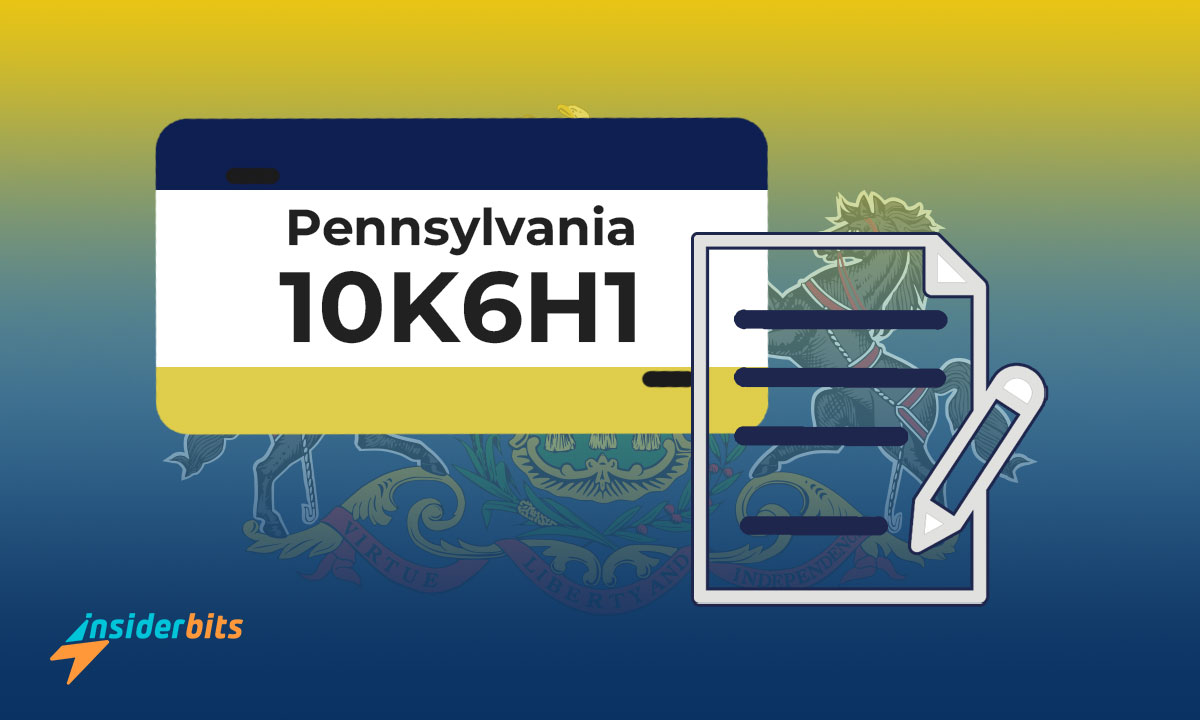When purchasing a pre-owned vehicle in Pennsylvania, conducting a thorough license plate search is a prudent step to gain valuable insights into the car’s history.
Through the use of the power of license plate lookup tools, car buyers can access a wealth of information, including previous ownership records, accident history, and potential issues that may impact the vehicle’s value and reliability.
Through a license plate search, you can make informed decisions and avoid potential pitfalls when investing in a used car.
Legal Framework for License Plate Lookups in Pennsylvania
In October 2022, Pennsylvania amended Section 1332 of the Vehicle Code to clarify when a license plate is considered obscured or obstructed. The new law states that a plate must be “illegible, obscured, covered or otherwise obstructed in any manner at a reasonable distance” for a violation to occur.
These changes protect motorists from unwarranted vehicle stops and potential searches by law enforcement. Officers must have reasonable suspicion or probable cause to conduct a stop, and stops without justification can lead to suppression of evidence in court.
License Plate Readers (LPRs) are used by Pennsylvania law enforcement to automatically capture and analyze license plate numbers in real-time. This data can be used to locate stolen vehicles, track suspects, and enforce traffic laws. LPR evidence can be used in traffic court proceedings.
Nevertheless, there have been concerns raised about LPR accuracy, racial profiling, and costs/resource allocation. Motorists facing LPR-issued tickets can challenge them in court by questioning the technology’s accuracy or legality in their specific case.
Accessing Vehicle Records In Pennsylvania Using PennDOT
To access vehicle records individuals can request copies of their own driver history or vehicle records from the Pennsylvania Department of Transportation (PennDOT).
However, PennDOT will not provide vehicle ownership information based solely on a license plate number – a title number or VIN is also required to protect privacy.
Certain entities like employers, insurance companies, attorneys, and law enforcement can request and receive copies of driving records for authorized purposes.
How to Search Car History in Pennsylvania? – Guidelines
To search for car history in Pennsylvania, follow these guidelines based on the information provided in the sources:
Driver’s History Request
- To obtain a copy of your driver’s history, you can request a three-year, ten-year, or full driver’s history online through PennDOT’s Online Services or by completing a “Request for Driver Information” form (Form DL-503) and submitting it to PennDOT.
- Certified histories are available by completing Form DL-503, which includes detailed instructions and fees for different types of driving records.
Vehicle Record Request
- To request a copy of a vehicle record for a vehicle titled in Pennsylvania, you need to fill out Form DL-135, “Request for Vehicle Information”.
- The record will include the current owner’s name and address, vehicle identification number (VIN), title, license plate number, make, model, year, and additional information upon specific request.
Privacy Protection
- Pennsylvania protects citizens’ privacy by not processing requests for vehicle ownership information based solely on a license plate number.
- Legitimate requests must include the vehicle’s title number or VIN to access paid information from PennDOT.
Authorized Requests
- Employers, insurance companies, attorneys, courts, and law enforcement can request and receive copies of driving records for authorized purposes.
By adhering to these guidelines, individuals in Pennsylvania can effectively search for car history, ensuring compliance with legal requirements and privacy protections while accessing relevant information about drivers and vehicles.
You can use these other tools to help you find vehicle details by license plate in Pennsylvania:
SearchQuarry:
- Visitez le site SearchQuarry website for a free Pennsylvania License Plate Lookup.
- Saisissez le numéro complet de la plaque d'immatriculation dans les champs de recherche.
- Vérifiez et sélectionnez une raison valable pour la recherche selon les conditions.
- Consultez les résultats qui peuvent inclure des informations sur le propriétaire du véhicule, l'historique du véhicule, les spécifications, et plus encore.
FindByPlate:
- Ouvrez un navigateur web et accédez à la page FindByPlate site web.
- Enter the license plate number and select Pennsylvania as the state.
- Consulter le rapport contenant les informations relatives à la plaque d'immatriculation.
FAXVIN:
- Accéder à la FAXVIN website for a Pennsylvania License Plate Lookup.
- Utilisez le formulaire de recherche de plaques d'immatriculation pour saisir le numéro de la plaque.
- La recherche prend environ 2 à 3 minutes et les résultats s'affichent sur votre appareil.
- Obtenez des informations telles que les relevés de propriété, l'historique des accidents, les relevés de compteur kilométrique, les déclarations de vol, etc.
LookupAplate:
- Visitez le site LookupAplate website for a free Pennsylvania License Plate Lookup.
- Utilisez l'option de recherche gratuite pour accéder aux fiches techniques des véhicules, à l'historique des rappels, à l'historique des services et à l'historique des ventes.
- Signalez les comportements préoccupants sur la route à l'aide de la plateforme communautaire.
- Pour obtenir des informations plus détaillées, demandez un rapport complet à l'un de leurs fournisseurs de données.
License Plate Search: Navigating Car History in Pennsylvania – Conclusion
In conclusion, searching car history by license plate in Pennsylvania involves navigating a complex legal framework and understanding the various tools and resources available.
From License Plate Readers used by law enforcement to track stolen vehicles and enforce traffic laws, to the privacy protections in place for vehicle ownership information, it is essential to approach car history searches in a legal and informed manner.
Through following the guidelines outlined by PennDOT and being aware of the legal landscape, individuals can effectively search for car data while respecting the privacy of vehicle owners.
Cet article vous plaît ? Ajoutez le blog Insiderbits à vos favoris et visitez-nous chaque fois que vous voulez apprendre de nouvelles informations passionnantes sur la technologie et bien plus encore !





